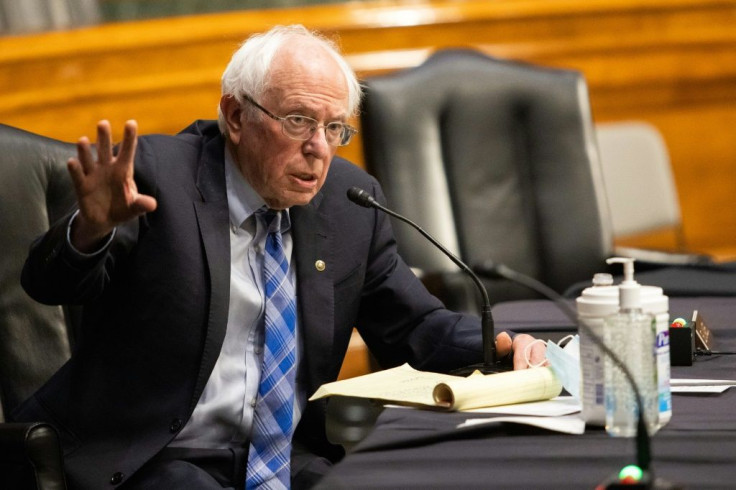Infrastructure Spending May Need Strong Endorsement From Sanders

As Congress debates the Biden administration's massive infrastructure spending bill, Sen. Bernie Sanders, I-Vt., offered his insight Sunday in what may be regarded as a crucial endorsement. Rebuilding the U.S. is considered the Biden administration's top goal after Democrats strengthen their grip on Capitol Hill after the 2020 elections
Appearing on NBC's "Meet the Press," Sanders said the bipartisan bill is "mostly good" but added some caveats.
"What is in the bipartisan bill in terms of spending is, from what I can see, mostly good," Sanders said.
"It is roads and bridges and we need to do that. That is what we are proposing in our legislation but in much greater numbers. One of the concerns that I do have about the bipartisan bill is how they are going to pay for their proposals.
"And they're not clear yet. I don't know that they even know yet. But some of the speculation is raising a gas tax, which I don't support, a fee on electric vehicles, privatization of infrastructure. Those are proposals that I would not support."
Sanders is considered a key figure for corraling liberal support for the Biden administration's most ambitious non-pandemic initiatives. He is among the most prominent voices on Capitol Hill and can rally some progressives to enthusiastically support the $6 trillion plan with the start of the 2022 election cycle just months away.
Sanders has long pushed for more infrastructure. But he noted Sunday how Biden's bill does not include some important issues related to the wealth gap.
"How do you not deal with housing when 18 million families are spending 50% or more of their limited incomes on housing?" Sanders said.
Much like his two presidential campaigns, Sanders stressed improving conditions for the working class.
"When we deal with climate, when we deal with infrastructure, when we deal with home health care, when we deal with childcare, we can create millions of good-paying jobs," he said.
Sanders has also stated that he wants to lower the eligibility age for Medicare recipients to 60 years old and also wants dental, vision and hearing to be covered.
It remains unclear what final the bill will include and how much it will cost. Twenty-one senators — 11 of which are Republicans — have coalesced around the bill's framework, which would improve bridges and roads. The bill will include $579 billion for new spending, $110 billion for improving roads, $66 billion for passenger freight rail and $48 billion for passenger transit.
Some of the more progressive Democrats have been hesitant to support the infrastructure bill because it does not provide a plan to combat climate change or provide child care.
Biden's plan would require reconciliation, as all 50 Senate Democrats would have to vote in favor of the proposal with Vice President Kamala Harris casting the tie-breaking vote. It remains unclear whether the bill would have the support of Democratic Sens. Joe Manchin of West Virginia and Kyrsten Sinema of Arizona.
President Biden has proposed raising taxes on corporations from 21% to 28% and increasing taxes on Americans who earn more than $400,000 a year.
Republicans have consistently dismissed raising taxes under any circumstance. Party leaders have insisted that for a deal to pass it must cost under $1 trillion.
Lindsey Graham, R-S.C., has been among the most vocal proponents of keeping the infrastructure bill under $1 trillion.
“I would just say this: President Biden, if you want an infrastructure deal with a trillion dollars it’s there for the taking -- you just need to get involved,” Graham told host Chris Wallace on “Fox News Sunday.”
Sanders has the support of many groups that believe the U.S. is lacking modern infrastructure. The American Society for Civil Engineering noted that updating the nation's infrastructure would cost at least $4.6 trillion.
The 2021 American Society of Civil Engineers’ Report Card gave the U.S. a C- infrastructure grade. Officials say poor infrastructure hampers economic growth and that taxpayers pay unintended costs.
Roads and bridges require $2 trillion to repair, and drinking water systems need $1 trillion over the next 25 years to maintain and expand service. There are 15,000 dams that need to be rebuilt at a cost of $45 billion.
The Federal Aviation Administration says it needs $32.5 billion to improve airports. The National Association for Manufacturers called for $1.3 trillion to be spent over a 10-year period on transportation infrastructure.





















